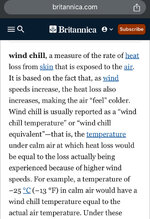All three of those brands meet the Ford F1 Specification except the Delvac 1300 which I would avoid for the 6.7L Power Stroke.I bought a truck with a 6.7 diesel this past summer. I’m at 84k miles on it now. Recently I went to Chinamart to buy some oil for it. As I stood there looking at the offerings on the shelf I found myself having a really hard time deciding what to buy.
The options were:
- Motorcraft 10W30 Diesel Motor Oil with the actual PowerStroke label on the jug
- Shell Rotella T4 15W40
- Shell Rotella T6 5W50 Full Syn
- Delvac 15W40
- Delvac 15W40 Full syn
We’re headed into winter so I didn’t really want a 15W viscosity oil, but the 5W was only available in Rotella T6 and there are reports of that oil “shearing down” faster than other oils. Also, the Motorcraft oil comes in 5 quart jugs and the others are only 4 quarts. I ended up standing there going back and forth in my head for like 10 minutes and then I realized how ridiculous it is to stand there so I grabbed the Motorcraft oil and left.
Given winter temps, which of those oils would you guys have chosen? Last year we got to -25F here for a few days, but during most winters we stay at 0F and above the entire season.
I want the best possible protection as I plan to keep this truck for several years.
You are using an out of date browser. It may not display this or other websites correctly.
You should upgrade or use an alternative browser.
You should upgrade or use an alternative browser.
Ford Motorcraft 10w30 diesel oil. Is it a synthetic blend?
- Thread starter Redhawk454
- Start date
some of the Delvac 1300's is on the Ford approved list last time I checked.All three of those brands meet the Ford F1 Specification except the Delvac 1300 which I would avoid for the 6.7L Power Stroke.
Good catch, It appears Mobil Delvac 1300 10w-30 Meets Ford's requirements. It does not show up for the 15w-40 or other grades however.some of the Delvac 1300's is on the Ford approved list last time I checked.
yea, I just went a re read his post.. it sounds like he has a 2022 Cummins.All three of those brands meet the Ford F1 Specification except the Delvac 1300 which I would avoid for the 6.7L Power Stroke.
I thought about including the cummins in my reply just in case but they referenced the motorcraft oil so didn't...I lostyea, I just went a re read his post.. it sounds like he has a 2022 Cummins.so any 10w30 with the CES 20086 will do.
that because Cummins has 2 things going for it.... it isn't a delicate engine and Cummins is the worlds largest independent diesel engine manufacturer, so if an oil makers wants to meet a spec, it's best they meet the Cummins spec.I thought about including the cummins in my reply just in case but they referenced the motorcraft oil so didn't...I lost. That Cummins spec seems to be easily satisfied with most any diesel oil.
Would love to see a comparison of virgin oil analysis between the Motorcraft 10W30 and the Rotella T6 5W40. I'm guessing the ash control and detergents are probably quite different between the two.
Would love to see a comparison of virgin oil analysis between the Motorcraft 10W30 and the Rotella T6 5W40. I'm guessing the ash control and detergents are probably quite different between the two.
all of the modern diesel engine oils for emission controlled engines are low ash.. all of them are less than 1% sulfated ash to avoid fouling DPF's..
VOA really won’t show you much.Would love to see a comparison of virgin oil analysis between the Motorcraft 10W30 and the Rotella T6 5W40. I'm guessing the ash control and detergents are probably quite different between the two.
Rotella is going to have a slate of friction modifiers present that the motorcraft won’t have. Because it is slated for use in wet clutches.
There will be a lot of non-VoA differences between the additive packages.
The're both going to be up to 1% ashWould love to see a comparison of virgin oil analysis between the Motorcraft 10W30 and the Rotella T6 5W40. I'm guessing the ash control and detergents are probably quite different between the two.
The Rotella is listed here.
https://bobistheoilguy.com/forums/threads/voa-diesel-oil-database.362789/
And Motorcraft 10w-30 HDEO listed here. Since it appears there is no gasoline rating on this oil it's going to have up to that 1%.
http://pqiadata.org/Ford_Motorcraft__SDF_10W30.html
I think you meant the opposite? I'm under the knowledge that wet clutch requirements in oil use LESS friction modifiers.VOA really won’t show you much.
Rotella is going to have a slate of friction modifiers present that the motorcraft won’t have. Because it is slated for use in wet clutches.
There will be a lot of non-VoA differences between the additive packages.
The're both going to be up to 1% ash
The Rotella is listed here.
https://bobistheoilguy.com/forums/threads/voa-diesel-oil-database.362789/
And Motorcraft 10w-30 HDEO listed here. Since it appears there is no gasoline rating on this oil it's going to have up to that 1%.
http://pqiadata.org/Ford_Motorcraft__SDF_10W30.html
I think you meant the opposite? I'm under the knowledge that wet clutch requirements in oil use LESS friction modifiers.
No, they use friction modifiers. They use distinctly their own, friction modifiers.
Ironically I just sat through an hour long presentation from Afton about this…
I understand you are saying that they use their own friction modifiers but when tallying up modifiers when comparing to a non motorcycle rated oil are you saying they use just as many of these friction modifiers or more friction modifiers?No, they use friction modifiers. They use distinctly their own, friction modifiers.
Ironically I just sat through an hour long presentation from Afton about this…
Windchill is purely a phenomenon that only applies to bare skin, not to inanimate objects. If it’s -30*F with a windchill of -75*F, the oil that’s in that exposed cold engine is no colder than -30*F. Period.I think you're fine. In my experience it helps to keep a parked vehicle out of the wind though. Couple of days winter wind exposure really chills an engine!
Attachments
yep, like heat index... yeah, it feels like 70 below or it feels like 105. miserable, but machinery doesn't notice because it doesn't have feelings. I suspect windchill or heat index might have a slight effect on machines, mostly from the fact wind moves air and heat faster, but it would be a small amount.. .Windchill is purely a phenomenon that only applies to bare skin, not to inanimate objects. If it’s -30*F with a windchill of -75*F, the oil that’s in that exposed cold engine is no colder than -30*F. Period.
I understand you are saying that they use their own friction modifiers but when tallying up modifiers when comparing to a non motorcycle rated oil are you saying they use just as many of these friction modifiers or more friction modifiers?
Let’s think about wet clutches for a moment. As, I actually found this a fascinating conversation. (Presenter name retraced… idk why. It’s public knowledge.)
Users of wet clutch equipment, want smooth shifting. Whether it’s in a manual transmission, Ala motorcycle or a state of the art automatic transmission. You want smooth shifting. We know clutch material, is, anything but smooth, as there has to be traction between the clutches. However, a clutch doesn’t actually grab, or release, instantaneously. So, friction modifiers are involved. Typically, organic acids, with a polar head and a tail.
These OFM’s (organic friction modifiers) will (hopefully) bind to the clutch material. Their tails in the oil. (This is a very short TL;DR of this presentation.) The tails, drag together smoothing the clutch plates together, then drag slightly, as the clutches release. While increasing the clutch traction together.
As the picture shows you, fluid pressure, temperatures and clutch speed are all factors. Doing this all correctly, smooths out shifting, prolongs clutch life and increases fuel economy. Etc.
These will be different FM’s that are typically found in engine oils. As they are doing a different job. Which, created a formulation problem. We didn’t go into formulation, but as always, oils are always a series of compromises. Additives fight for space in the formulation.
I’m not calling Rotella bad for this reason. If anything, it’s just a more complex formulation. However, I’m saying compromises has to be made when you’re trying to formulate.
Attachments
Airflow will make a large difference up until the engine reaches equilibrium.yep, like heat index... yeah, it feels like 70 below or it feels like 105. miserable, but machinery doesn't notice because it doesn't have feelings. I suspect windchill or heat index might have a slight effect on machines, mostly from the fact wind moves air and heat faster, but it would be a small amount.. .
Good read but We want smooth shifting without slipping.Let’s think about wet clutches for a moment. As, I actually found this a fascinating conversation. (Presenter name retraced… idk why. It’s public knowledge.)
Users of wet clutch equipment, want smooth shifting. Whether it’s in a manual transmission, Ala motorcycle or a state of the art automatic transmission. You want smooth shifting. We know clutch material, is, anything but smooth, as there has to be traction between the clutches. However, a clutch doesn’t actually grab, or release, instantaneously. So, friction modifiers are involved. Typically, organic acids, with a polar head and a tail.
These OFM’s (organic friction modifiers) will (hopefully) bind to the clutch material. Their tails in the oil. (This is a very short TL;DR of this presentation.) The tails, drag together smoothing the clutch plates together, then drag slightly, as the clutches release. While increasing the clutch traction together.
As the picture shows you, fluid pressure, temperatures and clutch speed are all factors. Doing this all correctly, smooths out shifting, prolongs clutch life and increases fuel economy. Etc.
These will be different FM’s that are typically found in engine oils. As they are doing a different job. Which, created a formulation problem. We didn’t go into formulation, but as always, oils are always a series of compromises. Additives fight for space in the formulation.
I’m not calling Rotella bad for this reason. If anything, it’s just a more complex formulation. However, I’m saying compromises has to be made when you’re trying to formulate.
Last edited:
Good read but We want smooth shifting without slipping.However it's formulated I've learned not to use non-cycle rated oil in a cycle b/c of clutch slipping. The cycle rating on oil is very important to prevent it. That is one of the most important things in a cycle oil IMO.
Agreed. And that was my point?
Non JASO Ma/Ma2 oils, would lead to other issues. Such as (one example) varnishing on the clutch plates.
I tend to talk out loud sometimes... Carry on.Agreed. And that was my point?
Non JASO Ma/Ma2 oils, would lead to other issues. Such as (one example) varnishing on the clutch plates.
Similar threads
- Replies
- 42
- Views
- 4K
- Replies
- 2
- Views
- 3K
- Replies
- 7
- Views
- 2K
- Replies
- 48
- Views
- 3K


